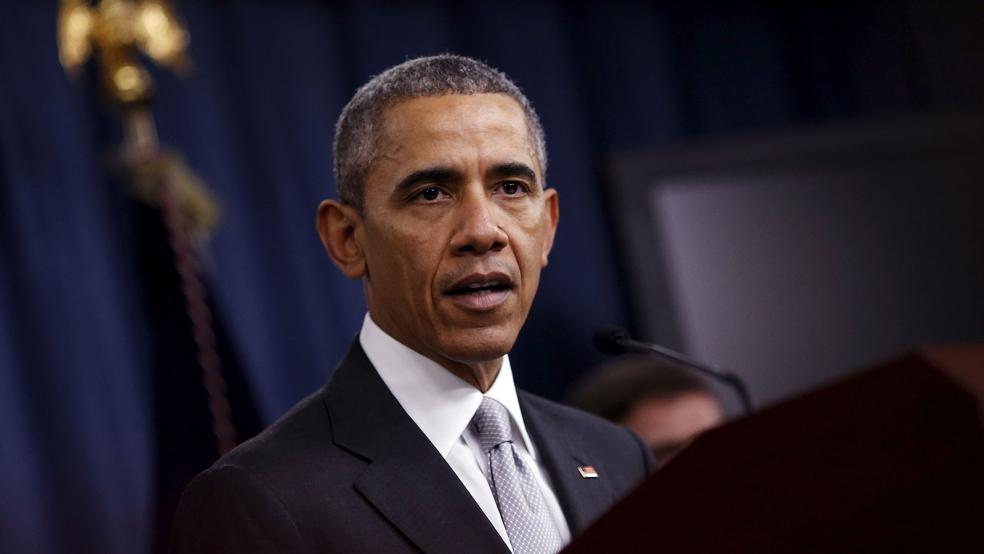The disclosure that members of Congress were swept up in National Security Agency snooping on Israel and other U.S. allies is certain to add a new layer of distrust and tension between Republican lawmakers and President Obama heading into the final year of the president’s administration.
The administration’s successful pursuit of a nuclear non-proliferation agreement with Iran earlier this year over the strong objections of Israel Prime Minister Benjamin Netanyahu and many congressional Republican leaders seriously strained Obama’s relations with the Republican-controlled Congress. It also likely complicated dealings between the two sides on other foreign policy and national security matters, including tactics for waging war against ISIS and a major new trade agreement with Pacific Rim countries.
Related: Iran Nuclear Deal Looks Like a Lock as Mikulski Announces Her Support
Netanyahu strongly opposed the Iran nuclear negotiations during a speech to Congress in early March that had been arranged by then-House Speaker John Boehner (R-OH) with no prior consultation with the White House. And House and Senate Republicans were virtually united against the nuclear agreement that nonetheless survived congressional review in early September.
As bad as all that was, White House-congressional relations were further poisoned on Tuesday following a Wall Street Journal report that the NSA had captured private communications between Netanyahu and his aides and U.S. lawmakers and members of American Jewish groups.
According to the report, White House officials worried about being accused of spying on Congress, but also believed the intercepted information could be valuable in countering Netanyahu’s aggressive campaign against the deal. Netanyahu argued that despite Iran’s agreement to shelve its nuclear program in return for a lifting of international economic sanctions, the Iranians could resume development of a nuclear weapon in 15 years and thus threaten the existence of Israel.
The administration strongly disagreed with Israel’s argument and feared Netanyahu’s meddling in the congressional review of the emerging pact. Instead of leaving a paper trail, the White House let the NSA decide what intercepted information from Israel to share and what to withhold. “We didn’t say, ‘Do it,’ a senior official told The Wall Street Journal. “We didn’t say, ‘Don’t do it.’”
Related: How the Iran Nuclear Deal Can Reshape the Middle East
The disclosure, not surprisingly, provoked a torrent of complaints from Republican lawmakers, including a couple on the presidential campaign trail.
Sen. Rand Paul (R-KY), a prominent libertarian seeking the GOP presidential nomination, told Fox News that the report underscores the need for more controls on the NSA.
“I’m appalled by it,” Paul said on Wednesday. “You could see how it would stifle speech if you’re going to eavesdrop on congressmen, and that it might stifle what they say or who they communicate with.”
Sen. Ted Cruz of Texas, another presidential contender, said that the spying on Israel was “indicative of the Obama-Clinton foreign policy and their inability to distinguish friends from enemies.”
Related: How Iran Is Taking Over the Middle East
“The Obama administration has been the most hostile and antagonistic to the nation of Israel in our country’s history,” Cruz added. “We’ve also seen Hillary Clinton, when asked to name her enemies, doesn’t name Iran, doesn’t name radical Islamic terrorists but names Republicans, names half of America as her enemy.”
Former House Intelligence Committee Chair Pete Hoekstra (R-MI) denounced the communication intercepts an “abuse of power” and called for an investigation into the allegations. The retired lawmaker wrote on his Twitter account that the reported NSA spying on congressional and Israeli communications was “very disturbing” and “maybe unprecedented.”
However, Sen. Marco Rubio of Florida, another GOP presidential aspirant who has taken an increasingly hard line on national security matters, was more guarded in responding to the news.
During an interview with Fox and Friends, the freshman member of the Senate Select Committee on Intelligence cautioned that published report might not be “the entire story” and that he wanted to be “very careful” about discussing the sensitive case.
Related: Rubio Outshines Trump, Cruz in GOP Foreign Policy Debate
“Obviously, people read this report, they have a right to be concerned this morning about it,” he said, adding that the situation “might be worse” than described by the Journal.
The administration’s decision to target Netanyahu’s phone conversations with his allies in the U.S apparently was carefully considered, according to the report.
In the wake of former NSA contractor Edward Snowden’s exposure of the government’s widespread spying operations in 2013, the Obama administration conducted a review that led to president’s speech in January 2014 saying he would curb such eavesdropping in the future.
While the executive order subsequently shielded French President Francois Hollande, German Chancellor Angela Merkel and other North Atlantic Treaty Organization leaders from having their phone calls monitored, NSA was allowed to target those leaders’ top advisers. But privately, Obama maintained the snooping on Netanyahu on the grounds that it served a “compelling national security purpose,” according to officials interviewed by the Journal.





